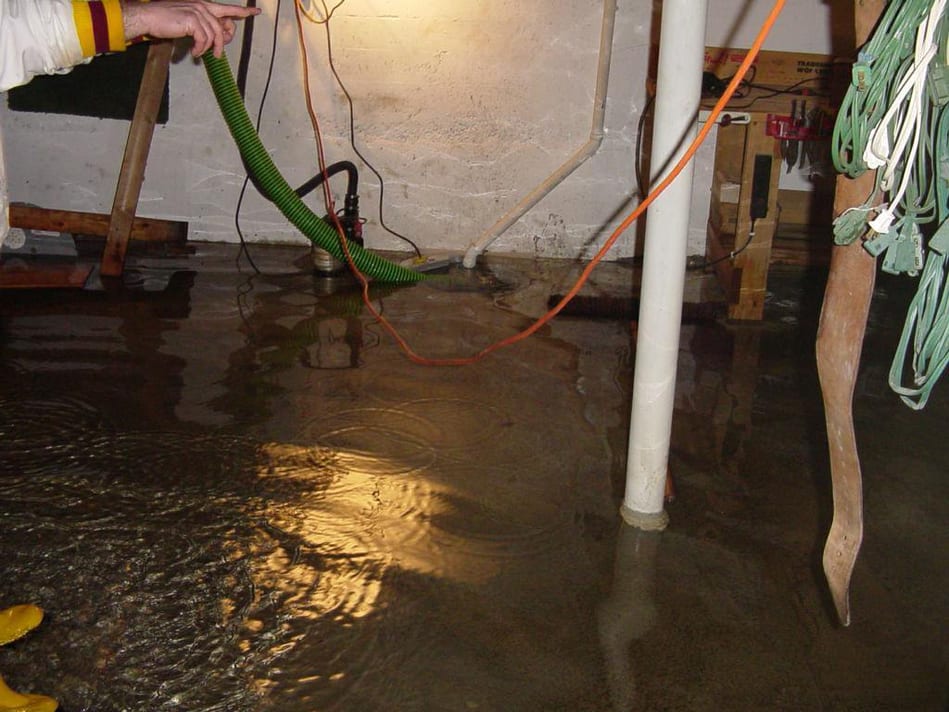Basement Waterproofing Do’s and Don’ts
Describing a wet basement as unpleasant is an understatement. A wet, leaky and musty or even a flooded basement is basically one of the worst nightmares to deal with for a homeowner – especially during cold winter months. Not only is it annoying to step into a leaky basement, but it can be hazardous to your health.
The good news is that a smart homeowner who knows the risks associated with a flooded or wet basement, will take the proper steps to ensure the basement stays dry and warm year round.
All houses are not created equal, therefore as a homeowner you are responsible for assessing your home and the surrounding area so you can figure out whether your basement is in danger of flooding.
Honestly, all basements are susceptible to flooding and this isn’t because a basement was poorly built. Simply put, when water accumulates outside of the home’s foundation it keeps putting pressure on the concrete – this is called hydrostatic pressure. One day, after all the pushing, the concrete will give up and crack, which is when water happily rushes in to flood your basement and ruin your furniture.
The key to keeping your basement dry is good waterproofing and proper drainage. The whole system consists of many parts that work together including gutters, downspouts, the slope of the ground around the foundation, sump pumps and more. It’s important to do your homework when investing in waterproofing so you can make sure that you are investing in the right solution for your home.
Let’s review some simple basement waterproofing do’s and don’ts .

DO research different methods of waterproofing
There are three main methods of basement waterproofing and these are interior sealants, exterior waterproofing and drainage. Since each situation, home and basement is different there are different solutions for different issues. A coat or two of a waterproof sealant may be enough for some homes, while others may need to install a French drain, a sump pump and waterproof sealing.
DON’T use DIY sealants
The easiest fixes are always temporary. If you visit a home improvement store you will find many options for waterproof methods and sealants boasting to be the best on the market. You will be bombarded with advertising trying to convince you that so and so product is the best and will fix every leaky basement. This is simply not true. We really can’t stress enough that not every wet basement is the same. If you find a small leak and you want to cover it up with a temporary sealant while you concoct a serious plan of action, that’s fine as long as you understand that this is only temporary and the leak will come back.
DO find the source of the leak
The best way to fix a leaky basement is to find the source of the water and cut it off. Is the water seeping in through the ground? It is coming in through a window? Is it the foundation of the home? This is the most important step of waterproofing, because unless you cut off the source of the leak and fix it, it will keep coming back.
DON’T ignore a leak
The worse thing you can do for your home, your basement and the overall foundation and structure of your home is to ignore a leak. It may seem small and insignificant, but that small crack or leak will get bigger and then you will have an even more serious problem to deal with. Being cheap won’t get you far, it’s better to invest a little bit of money and take care of a problem before it gets worse and you end up having to pay a lot more for damage control. Did you even know that basement waterproofing can save you money in the long run? It can reduce energy costs, save you money on your homeowner’s insurance as well as increase the overall value of your home.
DO keep your gutters clean
Who would have thought that clogged gutters could ultimately lead to a flooded basement? Imagine a backed up rain gutter suddenly letting loose and dumping all that water against the foundation of your home. Keep your gutters clean and free from debris and leaves so that the collected water can easily make its way to the downspouts and away from your home.
DON’T allow your downspouts to direct water around the foundation of your home
Speaking of downspouts, the whole point of having them is to make sure they keep water away from your home. If your downspout is just shooting water against the foundation of your home it’s more likely to cause a problem than fix it.
DO call Triad Basement Waterproofing for assistance
When in doubt, work with a professional company that specializes in all kinds of basement services. Our staff of experts will evaluate your basement and help you figure out what your basement needs to stay dry year round. Maybe you don’t need any waterproofing at all, you’ll never know until you ask. Triad has been around for more than 27 years and our team prides itself on a job well done every time. Give us a call if you have any questions about basement waterproofing , concrete repair or other basement related questions. We look forward to working with you!
